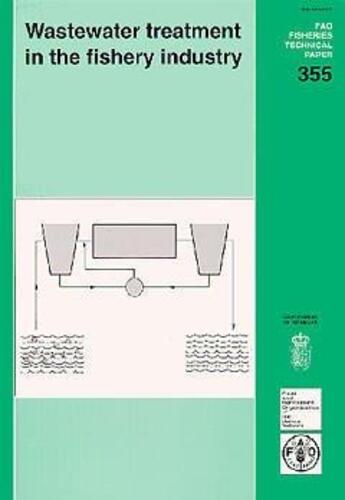-
Date de parution : 01/01/1996
-
Editeur :
Fao
-
EAN : 9789251037881
-
Série :
(-)
-
Support :
Papier
Résumé:
Concern on environmental issues is growing in both developed and developing countries. In particular, fishery industries (capture and aquaculture) suffer from pollution produced by other sectors of the society (industry, agriculture and urban sewage). As a consequence, fishery industries are... Voir plus
Concern on environmental issues is growing in both developed and developing countries. In particular, fishery industries (capture and aquaculture) suffer from pollution produced by other sectors of the society (industry, agriculture and urban sewage). As a consequence, fishery industries are becoming increasingly aware of their role as a potential source of pollution; and they must show a responsible attitude regarding waste from their fishery industry if they expect other sectors to reduce their pollution of waterbodies. Further, a number of Governments have decided to pass rules enforcing the fishery industries to treat their effluents in an appropriate way (e.g., Thailand and Venezuela). Fish technologists, particularly in developing countries, must become informed on this issue and be in position to advise Governments and the fishery industry on fishery wastewater treatment. This need, identified in several FAO/DANIDA Workshops on Fish Technology carried out by project GCP/INT/609/DEN (formerly GCP/INT/391/DEN), motivated the preparation of this document. In addition to the classic approach of utilizing solid fish wastes in the production of fish meal and oil, the current tendency of the fishery industry regarding wastewater moves in two complementary directions. On the one hand, the aim is to reduce wastes as much as possible by better fish handling and processing and by a rational use of water; this approach is usually called clean production. On the other hand, the objective is to search for wastewater treatment processes that could offset the costs involved, totally or in part, through the recovery of substances, in particular protein and fat, from wastewater. The two approaches are complementary in that clean production reduces the volume of effluents and makes them more concentrated, thus improving the overall economics of the recovery process. This paper deals specifically with wastewater characterization (explained in section 2), treatment and recovery. The present document was originally prepared for use at courses and workshops on fish technology, in which the participants have a basic knowledge of chemistry and microbiology. However, for people with practical experience working in the fishery industry, the document provides the necessary background information on fisheries wastewater treatment.
Donner votre avis















